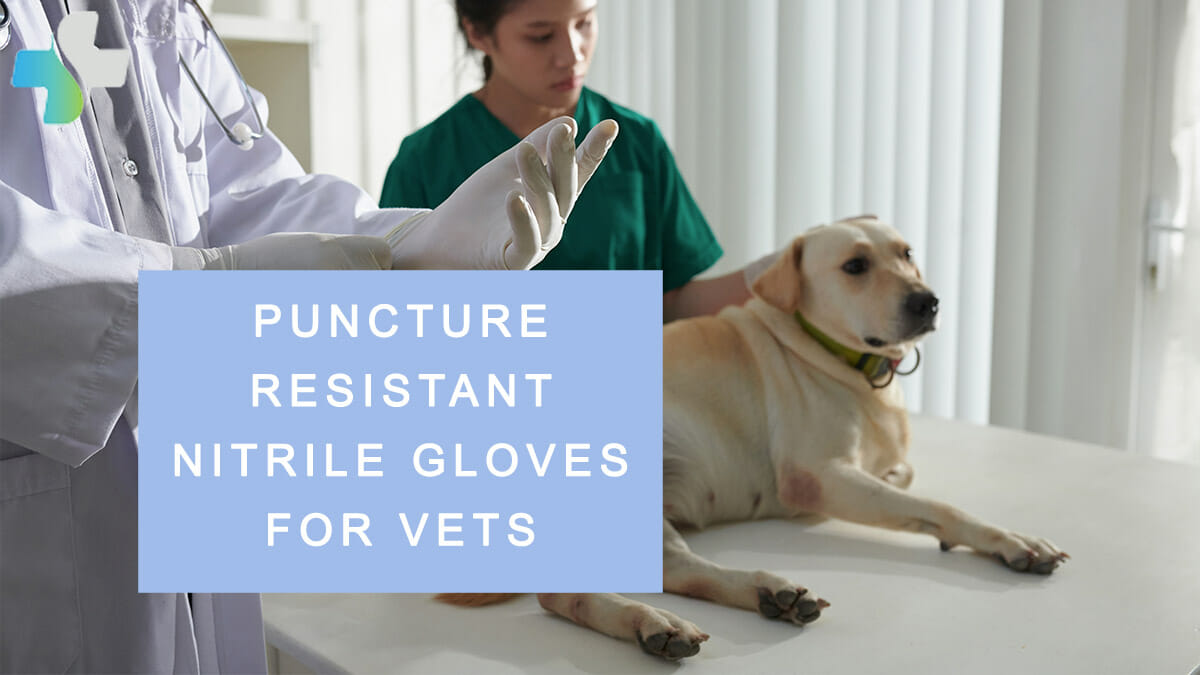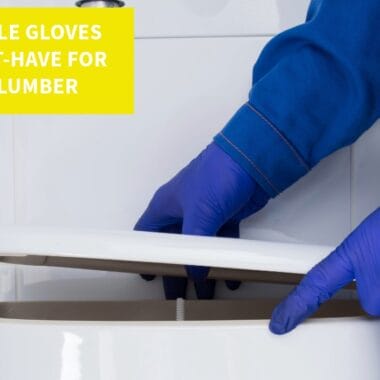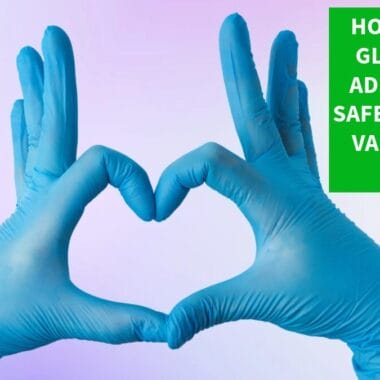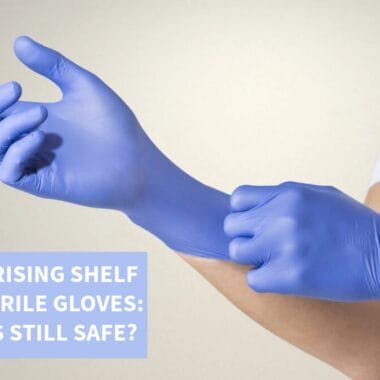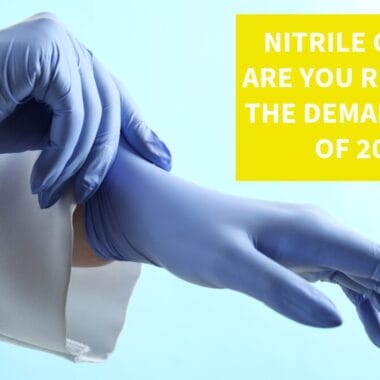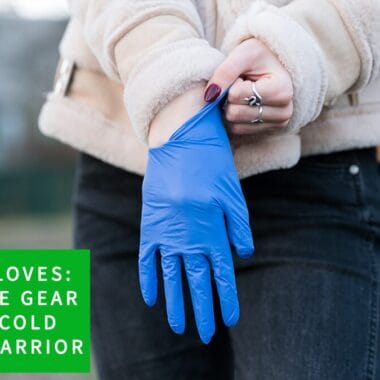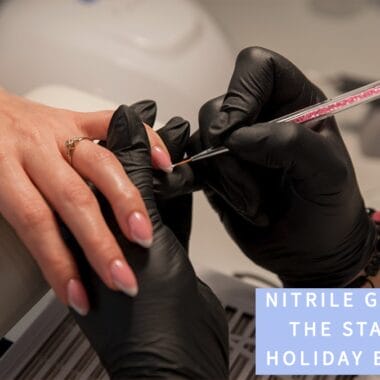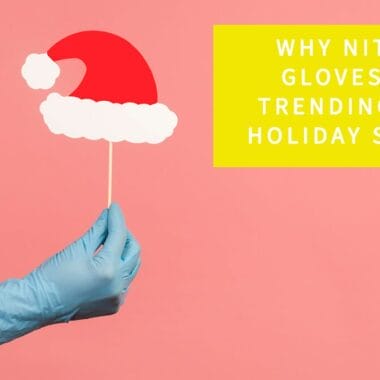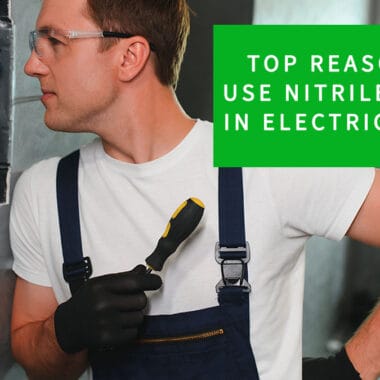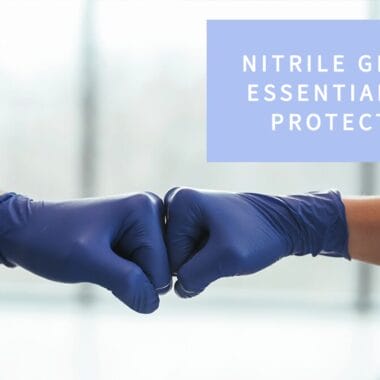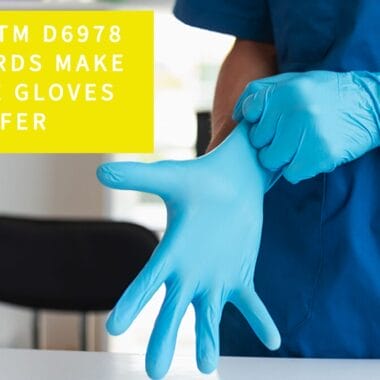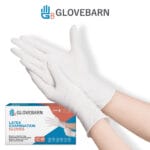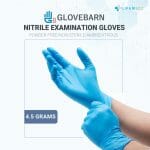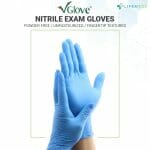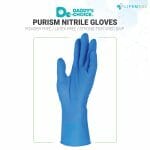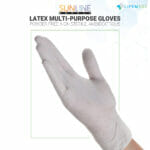Every day, veterinarians worldwide face countless challenges, from caring for distressed animals to performing intricate surgeries. They’re exposed to accidental needle sticks, animal bites, and chemical exposures. Having the proper personal protective equipment (PPE) gloves for veterinarians is paramount. While there are several different types of vet gloves, nitrile gloves offer the best puncture resistance for veterinarians.
The Best Types of Veterinary Gloves
Veterinarians utilize an array of gloves tailored to their diverse tasks and challenges. Examination gloves are used by veterinarians in the broader medical field, designed for routine check-ups and minor procedures. These types of gloves are made from latex, nitrile, or vinyl, with the option often dictated by considerations of chemical resistance, allergies, and tactile sensitivity. For deeper examinations or procedures like birthing and artificial insemination, elongated obstetrical gloves are used, which extend up the arm to the shoulder. Surgical gloves are reserved for operations sterility and precision. Disposable plastic gloves, typically polyethylene, cater to quick tasks requiring less tactile precision and frequent glove changes. Furthermore, some veterinarians might opt for heavy-duty utility gloves when dealing with larger or more aggressive animals for more robust durability and extra protection. The glove selection in veterinary practice is catered to specific vet tasks to ensure the safety and welfare of the animals.
While disposable gloves pose an environmental challenge, it is argued that nitrile gloves are more environmentally friendly than latex gloves. Under the right conditions, nitrile material decomposes quicker than other disposable gloves. Nitrile is a synthetic material with allergenic proteins, making it a safer choice for veterinarians and their animal patients, who might react to latex residues. Nitrile gloves’ properties allow them to be used in various other applications beyond animal health, such as lab work, cleaning, and more. Wearing veterinary gloves, such as nitrile, ensures the health and safety of the vet professional, the animal, and the owner by following standard veterinary precautions.
Nitrile Gloves for Veterinarians
Nitrile gloves are the preferred glove choice for veterinarians due to their distinct features that cater to the unique challenges of vet professionals. Foremost among nitrile gloves features is their superior puncture resistance, which is essential for vets who often use needles and other sharp tools. Their exceptional resistance to chemicals complements this quality, a critical feature when considering the plethora of disinfectants and medications veterinarians routinely handle. Additionally, nitrile gloves are an allergy-friendly alternative, a concern for humans and animals that might react to latex residues. Their durability ensures they can withstand vet tasks, such as intricate procedures or handling animals that might scratch or claw. Nitrile gloves’ snug fit and tactile sensitivity allow precision during examinations and procedures.
Nitrile’s versatility and features, like improved grip from textured surfaces and various thickness options, make them suitable for a broad spectrum of tasks. As the demand for animal health PPE has grown, nitrile gloves have become more economically competitive. In essence, nitrile gloves’ multifaceted benefits align seamlessly with veterinary professionals’ needs, solidifying their status as a top choice. When sourced properly, nitrile gloves can be more environmentally friendly than other alternatives. Their durability requires fewer glove changes, which leads to cost savings and less waste.
The Benefits of Puncture-Resistant Gloves for Vets
Veterinarians often work in environments where they encounter various risks, both biological and physical. When selecting appropriate PPE for animal health, puncture-resistant nitrile gloves offer multiple benefits. Puncture resistance is the glove’s ability to withstand penetration from sharp objects. It measures the glove’s toughness and is a barrier against threats like needles, claws, and teeth in veterinary work.
Protection from Sharp Objects
Veterinarians frequently use needles for vaccinations, drawing blood, and other procedures. Puncture-resistant gloves reduce the risk of accidental needle sticks. Vet gloves that can resist penetration from a mistakenly jabbed needle are a necessity in their line of work. Cut-resistant nitrile gloves ensure that accidental pricks are significantly minimized for vet professionals.
Chemical Resistance
Nitrile gloves are resistant to a variety of chemicals. Chemical resistance is essential as vets often handle medications, disinfectants, and other harmful substances that might irritate the skin. Puncture and chemical-resistant PPE for veterinarians is critical for protecting the health of both the vet and the animal. These features ensure harmful substances don’t come in direct contact with the skin, which is especially crucial when handling medications that can be absorbed transdermally.
Protection Against Animal Bites and Scratches
While most vets are skilled at handling animals, there’s always a risk of an animal scratching or biting. Wearing the proper vet PPE gloves can offer additional protection against such incidents. Animal bites and scratches are occupational hazards for veterinarians, making using vet gloves mandatory. While no glove can provide 100% protection against an animal bite, puncture-resistant nitrile gloves can defend against minor bites and scratches.
Combatting Biological Hazards
Vets are exposed to bodily fluids like blood, urine, and saliva while handling animals. Puncture-resistant nitrile gloves provide a barrier of protection against potential pathogens in these fluids. The cut-resistant features of nitrile gloves help prevent transmitting diseases like zoonoses, which can transfer from vertebrate animals to humans.
Enhanced Durability and Grip
Nitrile gloves are a type of glove best known for their durability. They’re less likely to tear than other materials, providing reliable protection for veterinarians. Many nitrile gloves offer textured surfaces, allowing for a firmer grip—a benefit when handling small instruments or energetic animals. Nitrile gloves with textured fingertips or palms provide enhanced durability and a better grip, useful for vets when handling small tools or slippery objects.
Choosing Puncture-Resistant Nitrile Gloves for Veterinarians
Puncture-resistant nitrile gloves provide veterinarians with reliable PPE to protect themselves from the risks they face in their work. Choosing the correct type of veterinary gloves is typically based on the task, and nitrile gloves suit many of them. Veterinarians’ PPE gloves are crucial to their safety and efficacy at work. Puncture-resistant nitrile gloves are a superior choice for vets due to their protective qualities and additional benefits, such as chemical resistance, durability, and allergen avoidance. Providing vets with the best protective gear remains a top priority for animal health and their own. Nitrile gloves are the most suitable type of PPE for veterinarians to ensure their health and safety at work.
References:
- American Veterinary Medical Association. Personal protective equipment (PPE).
- National Association of State Public Health Veterinarians, 2015. Compendium of Veterinary Standard Precautions for Zoonotic Disease Prevention in Veterinary Personnel.
- World Health Organization. Zoonoses.

